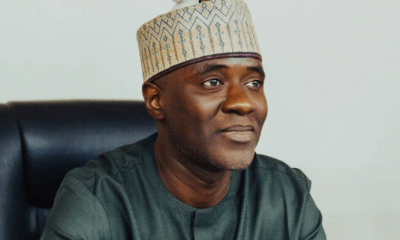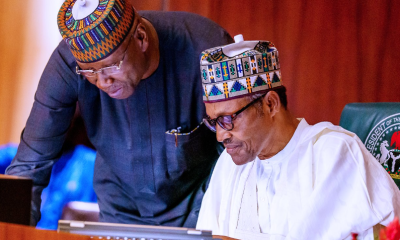Editorial
Which Way Nigeria

By Dr Moses George
It is no longer news that millions of people in Nigeria are groaning and struggling under the excruciating yoke of bad economy. The recent ominous waves of challenges were caused largely by government’s reform policies.
Most analysts are in agreement that the scrapping of fuel subsidies on 29 May 2023 by President Ahmed Bola Tinubu is largely responsible for the astronomical price hikes in food, transportation and essential commodities. Obviously, Tinubu underestimated the consequences of that pronouncement when he made it.
In addition to poverty, the country is also grappling with unprecedented security challenges. All kinds of violence, including terrorism, banditry and ethnic conflicts has continued to plague the country, leading to the loss several lives, displacement of millions of people and a significant hardship on Nigerians. It’s impact on the economy is devastating.
Let us call a spade a spade. The removal of subsidy by Mr President has made life in Nigeria a living hell. The poor masses that have had a rough ride under the previous administrations have been driven further into an unprecedented level of poverty under this administration.
President Bola Tinubu and governors of the 36 states of the federation must without further delay put calculated measures in place that’ll address the prevailing economic and social problems bedeviling the country. Failure to do may lead to adverse consequences because the people are hungry and angry!
The New England Couples Institute published a well-known paper on the mathematical correlation between food prices and discontent: Every time food prices breached a certain brink, riots broke out worldwide. To say that Nigeria is sitting on a keg of gun powder over soaring food prices and other pressing challenges is not an overstatement or an exaggeration. The present situation in Nigeria is fast fueling discontent that may snowball into wide spread riots and protests. To stop this from happening, government must comes up with initiatives that’ll immediately ease the people’s suffering.
A persistent and sharp increase in food prices as is the case today would be the last straw that jolts Nigerians into violent riots. Already, pockets of demonstrations are happening here and there. This is something that should not happen in a country that is sitting on a precipice, ready to tip over into a chasm.
Our leaders should learn from history. In 2008, Egypt experienced a bread shortage that led to hunger and unrest. Government’s inability to meet that deficiency turned a wave of hungry people into an angry crowd. That crisis eventually brought down President Hosni Mubarak administration. How can we forget so soon what happened in Tunisia years back? It was a revolution propelled by outrage over high food prices, high rate of unemployment, etc. The present situation in Nigeria is worse.
With inflation at 29.90%, soaring exchange rate, food shortages, high level of insecurity and many other economic challenges, Nigeria is at a breaking point. This is not an exaggeration. Let us not delude ourselves! Nigeria’s government should not take the resilience of the people for granted. A hungry man is not only an angry man, but also a restive and dangerous man. Without any further delays, President Tinubu must take effective measures and find sustainable solutions for the good of all.
In August 2023, Nigeria’s government announced the release of N180bn palliative package to states to cushion the impact of the fuel subsidy removal. Each state was expected to get N5bn and 180 trucks of rice as part of measures to assuage the pains of the subsidy removal. Most poor Nigerians never got anything. Not a grain of rice, not a Kobo! Governors and other classes of politicians were accused of cornering the allocations for themselves and their cronies.
To move forward, we must learn from past experiences. Nigerians do not want palliatives and cash transfers because it will not get to them. Therefore, instead of considering the distribution of palliatives and cash transfers to poor Nigerians, government should urgently return the fuel subsidy that was removed. The return of fuel subsidy will result into the return of normalcy. A word is enough for the wise!
















